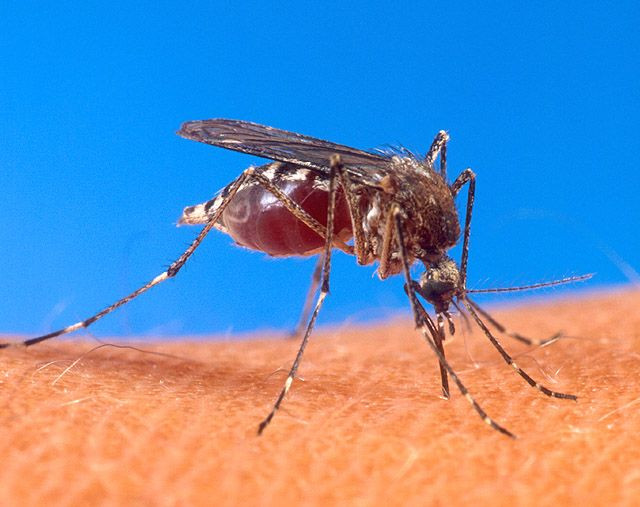Mosquito-Borne Zika Virus Might Be Behind An Epidemic Of Birth Defects In Brazil

An emerging mosquito-borne virus previously thought relatively harmless might have the added ability to cause birth defects in developing fetuses, health officials from around the world have recently speculated.
Previously confined to Africa and Asia, the past two years have seen the Zika virus (ZIKV) invade the shores of South and Central America, with Brazil being the ninth member state of the Pan American Health Organization (PAHO) to report cases of Zika spread by the local mosquito population in May 2015. Though Zika’s spread throughout the Americas was considered worrisome enough, this past October, the Ministry of Health in Brazil reported a frightening rise in the number of children born with smaller-than-healthy brains and skulls, a condition known as congenital microcephaly. On December 1, the PAHO further clarified the severity of Brazil’s microcephaly crisis in an epidemiological alert.
"As of 30 November 2015, 1,248 cases of microcephaly, including 7 deaths, have been reported in 14 states of Brazil, which are under investigation," the PAHO stated. "This data demonstrates a twentyfold increase in comparison to the rate observed in previous years." According to Brazilian health officials, at least 3 of these deaths have been associated with Zika infection, possibly making them the virus’s first fatalities on record since its discovery in 1947 in the nation of Uganda.
An Once Lesser Concern
Named after the forest it was first found in, Zika, a flavivirus, hasn’t garnered as much attention as other mosquito-borne viruses like dengue or chikungunya. That’s likely because the disease it can cause, Zika fever, is almost always mild, with symptoms of fever, joint pain, and rash, among others, lasting from 2 days to a week, after a 3 to 12 day long incubation period (one-quarter of people infected with Zika never experience any symptoms). There is no vaccine available, and treatment is aimed at simply reducing sufferers’ discomfort. Although there’s been reports that Zika can rarely cause post-infection fatigue and weakness in some victims — a neurological condition known as Guillain-Barré syndrome — it causing microcephaly was never previously seen.
While there isn’t yet concrete proof of the connection between Zika and microcephaly, the circumstantial evidence is certainly strong. As the cases of Zika in Brazil largely began to pick up in the late spring, when these expectant mothers would have been in their first to second trimester, the timing of the microcephalic births starting in October lines up well. In addition, ZIKV RNA was found in the amniotic fluid of two women who later gave birth to children with microcephaly.
In Micronesia and New Caledonia, the increased occurrence of central nervous system defects among fetuses and newborns following recent Zika outbreaks also lends credibility to its proposed ability to affect the womb, according to a rapid risk assessment published by the European Center For Disease Prevention and Control (ECDC) this November. "The size of the affected populations and the number of births are much smaller in these places than in Brazil and could make it difficult to recognise an uncommon and previously unknown phenomenon, even if the outcome event is highly identifiable," the ECDC authors offered as a possible explanation for why cases of microcephaly weren’t seen in these previous outbreaks.
In its December 1 alert, the PAHO advised that member states establish and/or increase their capabilities to detect Zika, inform pregnant citizens of their possible risks and how to avoid mosquito bites, and prepare their healthcare facilities to better support affected newborns and other neurological sufferers of Zika. "In addition, Member States should continue efforts to reduce the presence of mosquito vectors through an effective vector control strategy and public communication," they concluded.



























